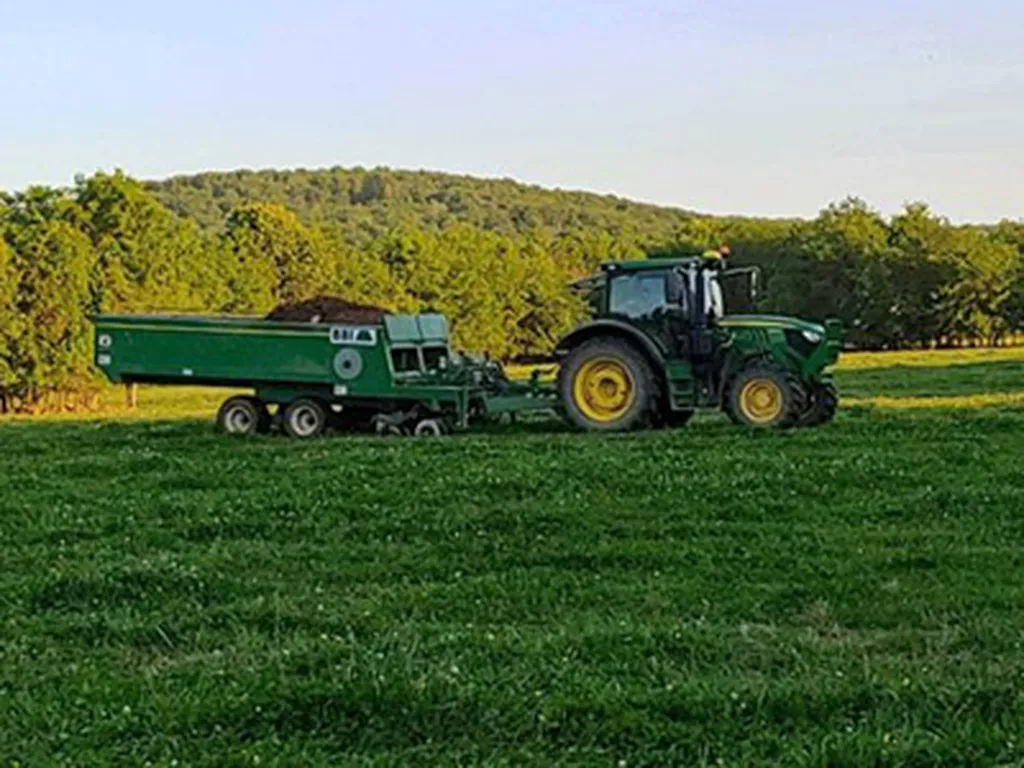In the quest for sustainable agriculture, researchers have uncovered a promising technique that could revolutionize buckwheat cultivation, particularly in semi-arid regions. A recent study led by Sina Fallah from the Department of Agronomy at Shahrekord University in Iran has demonstrated that subsurface banding of poultry manure significantly enhances photosynthetic efficiency, yield, and nutrient uptake in buckwheat. This method not only boosts crop performance but also contributes to environmental sustainability, offering a beacon of hope for farmers and agritech innovators alike.
The study, published in the journal ‘Plants’ (which translates to ‘Plants’ in English), explored various organic fertilizer application methods, including broadcasting and subsurface banding of poultry and cattle manure, as well as foliar spraying of manure extracts. The findings revealed that subsurface-banded poultry manure (BaPM) maximized key growth indicators such as chlorophyll b, carotenoids, anthocyanin, leaf area index, seed nitrogen, and spikes per plant. Notably, BaPM achieved the highest seed yield of 646 kg/ha, comparable to other treatments like broadcasting poultry manure and subsurface banding of cattle manure.
“Subsurface banding improves nutrient uptake by enhancing root zone retention,” explained Fallah. “This method ensures that nutrients are readily available to the plants, leading to better growth and higher yields.”
The research also highlighted the importance of targeted application methods in optimizing nutrient use efficiency. For instance, foliar spraying of poultry manure extract at a 1:5 ratio mitigated phosphorus deficiency, showcasing the potential of integrated organic fertilization strategies.
The commercial implications of this research are substantial. As the demand for sustainable and eco-friendly agricultural practices grows, farmers and agritech companies can leverage these findings to develop more efficient and environmentally responsible cultivation techniques. The use of poultry manure, a readily available and cost-effective organic fertilizer, can reduce reliance on synthetic fertilizers, thereby lowering production costs and minimizing environmental impact.
Moreover, the enhanced nutrient uptake and yield observed in the study suggest that subsurface banding of poultry manure could be a game-changer for buckwheat cultivation in semi-arid regions. This technique not only improves crop performance but also contributes to soil health and long-term sustainability.
As the agricultural sector continues to evolve, the integration of innovative organic fertilization methods like subsurface banding of poultry manure could pave the way for a more sustainable and productive future. The research by Fallah and his team serves as a testament to the potential of agritech innovations in shaping the future of agriculture.
In the words of Fallah, “This study demonstrates that integrating certain manure types with targeted application methods can optimize nutrient use efficiency, crop performance, and environmental sustainability. It’s a step towards a more sustainable and productive agricultural future.”
The findings of this research not only provide valuable insights for farmers and agritech innovators but also underscore the importance of continued investment in agricultural research. As the world grapples with the challenges of climate change and food security, the development of sustainable and efficient agricultural practices becomes increasingly crucial. The study published in ‘Plants’ offers a promising avenue for achieving these goals, heralding a new era of innovation and sustainability in agriculture.

